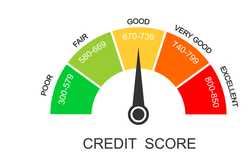- Free version available
- Budgeting and saving tools
- Can track credit score progress
- Can track net worth
Rocket Money vs. Mint


Our evaluations and opinions are not influenced by our advertising relationships, but we may earn a commission from our partners’ links. This content is created by TIME Stamped, under TIME’s direction and produced in accordance with TIME’s editorial guidelines and overseen by TIME’s editorial staff. Learn more about it.
Mint was one of the longest-standing budgeting apps on the market until its parent company, Intuit, announced in late 2023 that it would shut down the app as of January 1, 2024. On March 23, 2024 Mint officially shut down and users lost access to their Mint accounts.
The somewhat surprising move has left thousands of users searching for a Mint alternative to help them manage their finances. While Intuit is steering people towards Credit Karma, another brand under its umbrella, it’s a good time to compare different apps to find the best option for your situation.
Rocket Money, formerly Truebill, is one option to consider. This app offers features similar to Mint, though some key differences exist. Here’s what you need to know about Rocket Money, its pros and cons, features, and how it stacks up against Mint.

While Mint was an excellent budgeting app, Rocket Money also has budgeting features to help you stay on track. Besides helping you track and manage your money, it has tools for negotiating your bills, managing streaming services subscriptions, and more. Overall, Rocket Money could be a good alternative to Mint, though its free version offers fewer features.
Rocket Money offers several features to help you save money. Its budgeting tool analyzes your spending and provides insight into how much you can afford to spend each month, and it lets you set up and work toward savings goals. You can also use the app to identify your monthly subscriptions and cancel them if you choose. Those who upgrade to the Premium version will get access to a subscription-cancellation assistant that cancels unwanted subscriptions on your behalf.
Additionally, you can use Rocket Money to negotiate your monthly bills, which could also save you money. Just be aware that Rocket Money takes between 30% and 60% of the total savings it negotiates in a given year.
While it’s no longer available to download, Mint offered several features that could help save you money, some of which have migrated over to Credit Karma. The app easily linked up with bank, credit card, and loan accounts; had comprehensive spend tracking; and its budgeting tool provided helpful insight into where your money was going. Users could also set savings goals and track their progress, track their TransUnion VantageScore credit scores, and view their investments, all under one umbrella.
Mint offered most of its features for free, so users didn’t need to worry about an added cost eating into their savings. An optional Premium version was available for $4.99 per month, and there were additional costs for bill negotiation through its partner, BillShark. If BillShark successfully negotiated savings with service providers within two years, it would take 40% of that savings.
| Feature | Rocket Money | Mint |
|---|---|---|
Best for | Lowering bills and canceling; unused subscriptions | Budgeting |
Cost | Free, with optional paid features | Free, with optional paid features |
Features offered | Subscription management; Spend tracking; Automated saving; Bill negotiation; Credit-score tracking; Budgeting; Net-worth tracking | Spend tracking; Automated saving; Credit-score tracking; Budgeting; Investment tracking |
Customer service | Chat | In-app messaging |
Links to | Bank accounts, credit card accounts, investment accounts, loans, streaming services | Bank accounts, credit card accounts, investment accounts, loans, streaming services |
Availability | Online dashboard, iOS, Android | Online dashboard, iOS, Android |
Credit score calculated by | Experian VantageScore | TransUnion VantageScore |
Both Mint and Rocket Money offer similar features. Users can develop a budget, track spending, view their credit score, and track its progress, set and track savings goals, and negotiate bills. Used properly, all of these features could potentially save you money.
Both Mint and Rocket Money connect to different types of bank, credit card, and loan accounts. Users can also link up their streaming services and investment accounts, making it easy for users to track where their money is going and identify spending patterns and habits.
Both budgeting tools were available on similar platforms. Rocket Money offers an online dashboard and apps for iOS and Android. Users could also access Mint through these platforms.
Mint was a budgeting tool first, allowing users to develop and maintain a customized budget and set and track savings goals. While Rocket Money lets you do these things too, it focuses more on subscription management as a money-saving tool.
The number of features available for the cost is a primary difference between Rocket Money and Mint. Rocket Money offers limited features—ncluding account linking, balance alerts, subscription management, and spend tracking—for free. You’ll need a Premium subscription to access its other features.
Mint offered most features with its free account. Users could upgrade to Premium for additional features like bill negotiation and deeper insight into your finances.
A Mint Premium account cost $4.99 per month. Rocket Money users pay between $4 and $12 per month for a Premium account. Additionally, Mint partner BillShark would take 40% of the total savings it negotiated on users’ bills in the first 24 months. Rocket Money takes between 30% and 60% of total savings from bill negotiations in the first year.
Mint offered a broader range of features for free than Rocket Money. Users could access almost everything the app offered at no cost, except bill negotiation and in-depth money analysis. The higher-tier version of Mint was also less expensive overall than Rocket Money’s Premium version.
As mentioned, Mint’s primary focus was helping users with budgeting and setting savings goals. The majority of Mint users relied on the app as a true budgeting tool. Things like bill negotiation and subscription management were secondary focuses through Mint and its partner.
Rocket Money’s bill-negotiation and subscription-management features are the primary ways its users save money. These features were a secondary focus for Mint, which offered bill negotiation through a third-party partner, BillShark. You can use Rocket Money to easily identify your monthly subscriptions and cancel them yourself, or have the app cancel them for you if you’re a Premium user.
Likewise, Rocket Money Premium users also get access to its bill-negotiation feature, formerly Truebill. It’s possible that Rocket could save you a significant amount of money with bill negotiation, though it does take between 30% and 60% of any savings it negotiates.
With Mint’s recent shutdown, former users are likely looking for alternative budgeting solutions. Rocket Money is one option to compare if you’re seeking a new tool for managing your money. The app offers many features similar to Mint but has fewer free features. Its bill negotiation tool also takes up to 60% of your total savings, which is a relatively high percentage.
Despite the possible added costs, Rocket Money could be a good choice for some. Its credit-score and net-worth tracking are helpful tools for those seeking features beyond budgeting and saving. Overall, it’s worth seeing what Rocket Money has to offer as you compare different money-management apps, but other options with more free features might be a better fit for former Mint users.

It’s unclear why Intuit decided to shut down the popular personal finance app, Mint. Given that the company seems to be encouraging users to migrate to Credit Karma, it may be shifting more of its focus to that brand.
Several alternatives to Mint and Rocket Money are available. Free options include Goodbudget, SoFi Insights, Empower, and Money Manager. Other budgeting apps like YNAB (you need a budget), Quicken Simplifi, Monarch and PocketGuard have a nominal cost.
Rocket Money has several security measures in place to help keep user data safe. It relies on encryption technology, doesn’t store any banking logins for users, and its servers are secure.
However, some users complain about its bill-negotiation services, citing problems with company representatives impersonating account holders in an effort to reduce their monthly bills. Others mention issues with unexpected charges related to bill negotiation.
The information presented here is created by TIME Stamped and overseen by TIME editorial staff. To learn more, see our About Us page.



